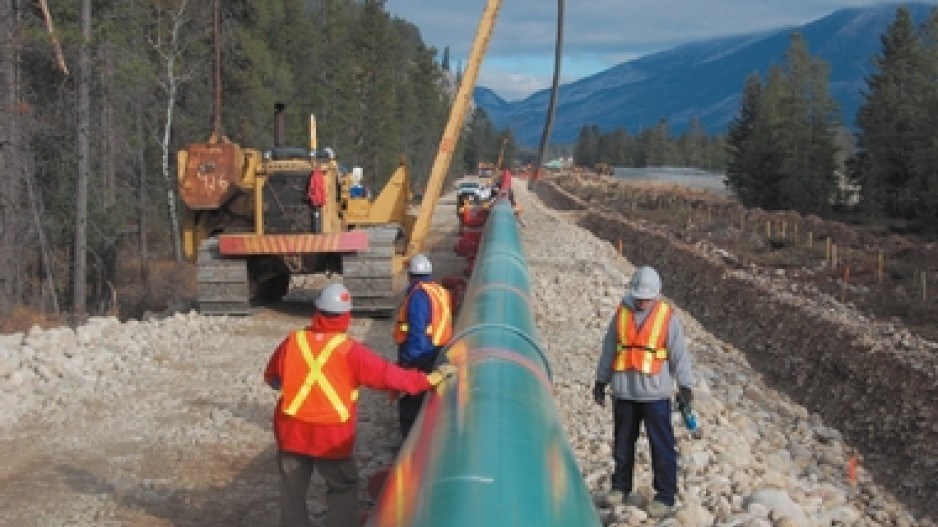If British Columbians want details on oil spill emergency response plans for the Trans Mountain pipeline, they may have to turn to U.S. authorities, which has published the kind of details that are being kept from the public in B.C.
In a conference call Friday, February 20, Ian Anderson, president of Kinder Morgan Canada, defended his company’s withholding of details on its oil spill emergency response plans from the Canadian public, saying it wasn’t required by the National Energy Board.
Meanwhile, it provided detailed plans to authorities in Washington State, which has published them. Some details of the plan have been made public in Canada, but in redacted form, even those provided to the B.C. government.
Anderson said unredacted plans will be provided to emergency responders, municipal governments and the B.C. government – just not the public.
That might not sit well with the public in B.C., where the biggest concern over the $5.4 billion pipeline expansion project is the environmental impact of an oil spill on land or at sea.
The expansion project is currently in federal environmental review process, and many interveners have expressed frustration with a lack of transparency over the issue of dealing with oil spills.
The scope of the hearing is defined by the NEB, and it has become clear that the process is less transparency in Canada than in the U.S.
Kinder Morgan has received 16,000 questions from interveners, including requests for detailed emergency response plans.
“The NEB concluded … that the emergency response plans were not directly relevant to the expansion,” Anderson said in Friday’s conference call.
He said the form and content of plans in the U.S. are different so the plans differ between B.C. and Washington State. In other words, if British Columbians want to use the emergency response plans published in Washington State to get a better understanding of how Kinder Morgan would handle an oil spill here, they may have to do some extrapolating.
Anderson said there are legitimate security reasons for not making details about the pipeline and its plans to deal with a spill public.
“There are very real security concerns that we have with respect to posting our full and complete plans where critical valves and critical access points to the system are delineated,” he said. “We think, for national security reasons and for public safety reasons, it’s prudent for aspects of the plans to remain confidential and private.”
Anderson said unredacted plans would be provided to emergency responders and municipal governments directly affected by the pipeline, but would be bound by confidentiality provisions that would prohibit those details from being made public.
Unlike the Northern Gateway pipeline, the Trans Mountain is an existing pipeline that would be expanded, tripling its capacity from 300,000 to 890,000 barrels of oil per day and increasing oil tanker traffic in local waters.



